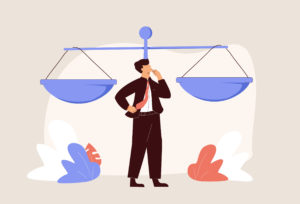Do Risk Takers Make Good Leaders?
![high-risk-[Converted] high-risk-[Converted]](https://groco.com/wp-content/uploads/2021/02/high-risk-Converted.png)
There are countless stories of leaders in the business world that have taken great risks in order to become successful. The fact is there is risk in almost any professional decision a person makes. Some choices carry much great risker than others, but risk is part of every decision we make. While you often hear about the great risks taken by some of the most successful business people and company leaders in the world, what you might not hear as much about their failures because of the unsuccessful risks they have taken. However, just about every great CEO or successful business leader will tell you that its the failures that have really led them to be successful, which is why you have to be willing to continue taking risks, even they turn out the way you had hope.
Characteristics of a Leader
Ajay Banga, president and chief executive officer of MasterCard and a member of its board of directors, is a great example of this. During an event at Stanford University several months back, Mr. Banga was asked to share one or two personality traits or characteristics about himself that have helped set him apart and allowed him to enjoy so much success compared to some other people that might not have achieved as much in their careers, or those who have seen their careers stall. Mr. Banga said that humility and the willingness to take risks are two big characteristics that have helped set him apart. “If you’re not willing to learn from people and always adapt or adjust and progress in your mind,” you can’t be successful. Mr. Banga said, “I don’t know that you can diverse [humility] from success. I think it’s actually a key part of who you are and how successful you can be.” He added: “I think you can be successful without humility, but you won’t enjoy it as much.
Being a Risk a Successful Risk Taker
The second characteristic Mr. Banga discussed was the ability or willingness to take risks, in both your life and your career. Many of the world’s greatest business leaders are known to take big risks. That doesn’t mean they make huge decisions on a whim without any deep thought and consideration of all the possible outcomes. However, after careful consideration and calculation they end up taking educated risks, often resulting in big rewards. Mr. Banga feels that in order to be a good leader you have to be a risk taker. However, he’s not just simply referring to changing jobs or careers. He said you have to be willing to be a risk taker in all aspects of your life and career.
Does Your Company Need a Fairness Opinion?
Does Your Company Need a Fairness Opinion? Although not required by statute or regulation, fairness opinions have become an important component of the board of directors and executives deliberation process as they seek to satisfy their fiduciary duties to shareholders and act with due care in an informed manner. Fairness opinions are prepared for and…
Tax Record Retention Guide
Storing tax records: How long is long enough? Tax Record Retention April 15 has come and gone and another year of tax forms and shoeboxes full of receipts is behind us. But what should be done with those documents after your check or refund request is in the mail? Federal law requires you to maintain…
3 Reasons Why Owning a Commercial Property May Make You More Money in Real Estate Investment
Making a Commercial Property Investment If you ever have been a landlord for residential property, I am sure that you get complaints from tenants about leaking roofs in the middle of the night. But what keeps most people back from investing in commercial real estate is the fear of the unknown since not many of…
Sec 1045: Small Business Stock Rollover of Gain
The Beauty of Section 1045 Enacted as part of the Taxpayer Relief Act of 1997 (effective for sales after August 5, 1997), a taxpayer other than a corporation may elect to roll over capital gains from the sale of qualified small business stock held for more than six months if another small business stock is…



